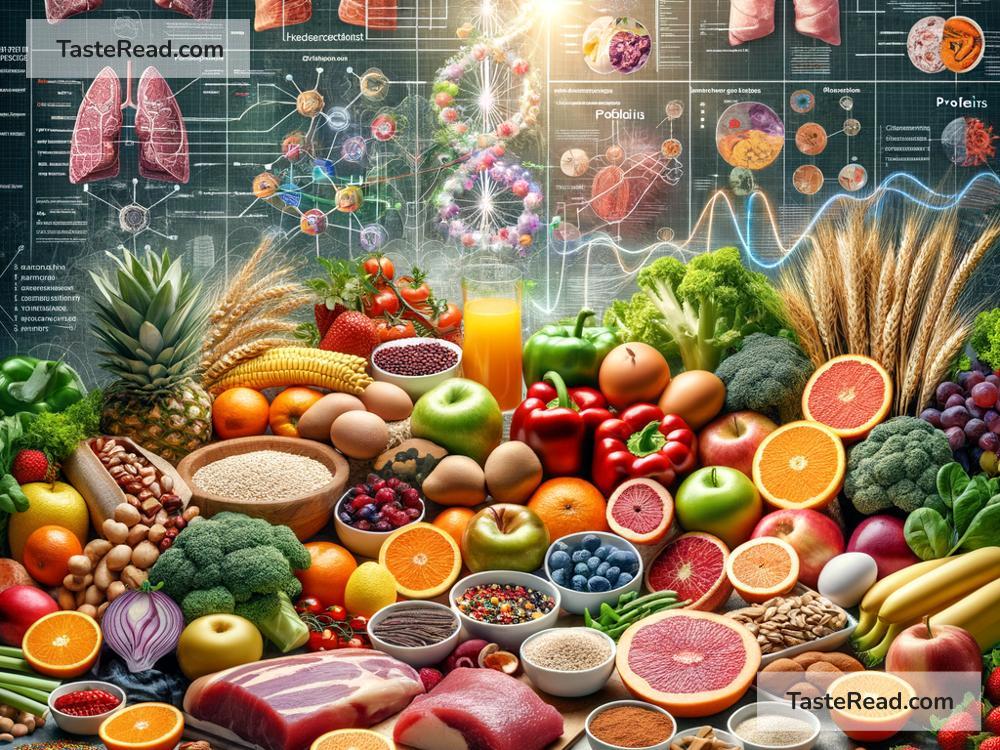The Science of Nutrient Metabolism: How Your Body Converts Food into Energy
Have you ever wondered how your body turns the food you eat into energy? This amazing process is called nutrient metabolism. It’s happening in your body right now, quietly working to keep you alive, active, and healthy. While the science behind metabolism can seem complicated, it’s fascinating—and understanding it can help you make better choices about your diet and lifestyle.
Let’s dive into the basics of nutrient metabolism, explained in simple terms.
What is Nutrient Metabolism?
Metabolism is your body’s way of processing food and nutrients to produce energy and repair body tissues. Nutrient metabolism focuses on how your body handles the three main nutrients we get from food: carbohydrates, proteins, and fats. Each of these nutrients has a unique role to play, and your body breaks them down differently.
When you eat, your digestive system breaks food into smaller pieces—molecules your body can use. These molecules travel through your bloodstream to your cells, where they are converted into energy, stored for later use, or used to build and repair tissues. All of this happens through a series of chemical reactions conducted by enzymes (tiny proteins that act like helpers).
The Role of Carbohydrates: Your Body’s Main Fuel
Carbohydrates are your body’s preferred source of energy. You can find carbs in foods like bread, rice, pasta, fruits, and vegetables. When you eat carbohydrate-rich food, your digestive system breaks it down into glucose, a simple sugar.
Glucose enters your bloodstream, causing your blood sugar levels to rise. Your body’s hormone, insulin, helps move glucose into your cells, where it is either:
1. Used for immediate energy: Your cells use glucose to fuel activities like walking, thinking, and even breathing.
2. Stored for later: If you don’t need energy right away, your liver and muscles store glucose in the form of glycogen.
If the glycogen stores are full and you keep eating more carbs than your body needs, the extra energy is converted into fat.
Proteins: The Building Blocks
Protein is essential for building and repairing tissues, muscles, and organs. Foods like meat, fish, eggs, beans, and nuts are good sources of protein. When you eat protein, your digestive system breaks it down into amino acids, which are the individual building blocks.
Your body uses amino acids to repair cells and tissues or to create new ones. For example, if you exercise and your muscles experience tiny tears (which is normal and necessary for growth), your body will use amino acids to repair those muscles, making them stronger over time.
While proteins are not your body’s preferred energy source, in extreme situations (such as starvation), your body can break down proteins and use them for energy.
Fats: Energy Storage Experts
Fats have earned a bad reputation over the years, but they are actually essential for your health. Foods like avocados, nuts, oils, and dairy products contain fats that your body needs for many functions.
When you eat fats, your digestive system breaks them down into smaller units called fatty acids and glycerol. These molecules play key roles, like:
– Providing insulation: Fats help keep your body warm.
– Protecting organs: Fat acts as a cushion for organs like your heart and kidneys.
– Long-term energy storage: If your body doesn’t need immediate energy, fats are stored for later use.
Your body burns fats for energy when carbohydrates aren’t available (for example, during fasting or prolonged exercise).
The Energy Currency: ATP
While carbohydrates, proteins, and fats are broken down into smaller molecules, the ultimate goal is to produce energy. This energy comes in the form of ATP (adenosine triphosphate), your body’s “energy currency.”
The process of producing ATP happens in tiny structures inside your cells called mitochondria. You can think of mitochondria as the power plants of your cells—they convert glucose, fatty acids, or amino acids into usable energy.
What Affects Metabolism?
Your metabolism isn’t always the same; it can be influenced by many factors, including:
1. Age: Metabolism slows down as you age.
2. Muscle Mass: More muscle means a faster metabolism because muscles need more energy to function.
3. Activity Level: Regular exercise boosts your metabolism.
4. Diet: The quality and quantity of food you eat affect how efficiently your body metabolizes nutrients.
5. Hormones: Hormones like insulin and thyroid hormones play a major role in regulating metabolism.
Keeping Your Metabolism Healthy
You can support your metabolism by making healthy choices:
– Eat a balanced diet with a mix of carbohydrates, protein, and healthy fats.
– Stay active! Exercise helps maintain muscle mass and keeps your metabolism working efficiently.
– Drink water: Staying hydrated helps your metabolic processes run smoothly.
– Get enough sleep: Sleep is crucial for hormone regulation and recovery.
Final Thoughts
Nutrient metabolism is an incredible biological process that powers your entire body. By understanding how carbohydrates, proteins, and fats are metabolized, you can make smarter choices about what to eat and how to care for your health.
The next time you enjoy a meal, take a moment to appreciate the science at work inside you! Your body’s nutrient metabolism is like a hidden factory that transforms food into energy and building blocks for survival. When you give it the right ingredients—nutritious food, exercise, and rest—you set yourself up for a healthy and energetic life.
So, the next time you eat, remember: you’re fueling a powerful and complex system designed to help you thrive!


